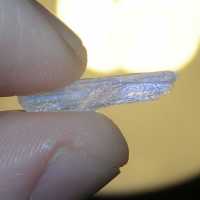
13 Sep Addiction Withdrawal Treatment Using Transcranial Magnetic Stimulation
MedicalResearch.com Interview with:
Ti–Fei Yuan, PhD
School of Social and Behavioral Sciences, Nanjing University, Nanjing, China
Shanghai Key Laboratory of Psychotic Disorders, Shanghai Mental Health Center, Shanghai Jiaotong University School of Medicine, Shanghai, China
Co-innovation Center of Neuroregeneration, Nantong University, Nantong, Jiangsu, China
Guangdong-Hongkong-Macau Institute of CNS Regeneration, Ministry of Education CNS Regeneration Collaborative Joint Laboratory, Jinan University, Guangzhou, China
School of Psychology, Nanjing Normal University, Nanjing, China
MedicalResearch.com: What is the background for this study? What are the main findings?
Response: Addiction is causing serious challenge to public health. Few drugs can treat or even alleviate addiction.
In recent years, non-invasive brain stimulation has been used to modulate craving responses in different types of drug addicts (heroin, methamphetamine, cocaine), and to prevent smoking or alcohol abuse.
However it is unknown if brain stimulation can also help addicts get rid of the aversive symptoms in the early withdrawal period.
The present study is to our knowledge, the first trial to alleviate drug withdrawal symptoms and associated insomnia with non-invasive transcranial magentic stimulation.
MedicalResearch.com: What should readers take away from your report?
Response: Employing brain stimulation to help drug addict at all stages during rehabilitation is important: from early stage to off withdrawal, to middle stage of craving modulation, and to end stage of cognition recovery.
MedicalResearch.com: What recommendations do you have for future research as a result of this work?
- We here encourage more scientists and clinicians to try, and to improve the current TMS procedures.
- Many things are unknown: (1) the relapse prevention effect or the long-lasting effect. (2) the proper target, frequency and intensity for different individuals.
- Are there any pharmacological agents can be taken to enhance the TMS treatment effect
- Tthe effect of TMS on social behavior, risky behavior and even criminal behaviors of addicts.
MedicalResearch.com: Is there anything else you would like to add?
Response: China has a very big size of addict population in the world ~ with 2.5 million addicts on record, and estimated for a total of 10-13 million methamphetamine/heroin abusers.
There are many advantages for clinical research now in China, and we acknowledge the disadvantages in our current conditions.
We sincerely wish to open collaboration with more international scientists and clinicians to improve the quality for our research.
Citation:
[wysija_form id=”3″]
[last-modified]
The information on MedicalResearch.com is provided for educational purposes only, and is in no way intended to diagnose, cure, or treat any medical or other condition. Always seek the advice of your physician or other qualified health and ask your doctor any questions you may have regarding a medical condition. In addition to all other limitations and disclaimers in this agreement, service provider and its third party providers disclaim any liability or loss in connection with the content provided on this website.
Last Updated on September 13, 2018 by Marie Benz MD FAAD
